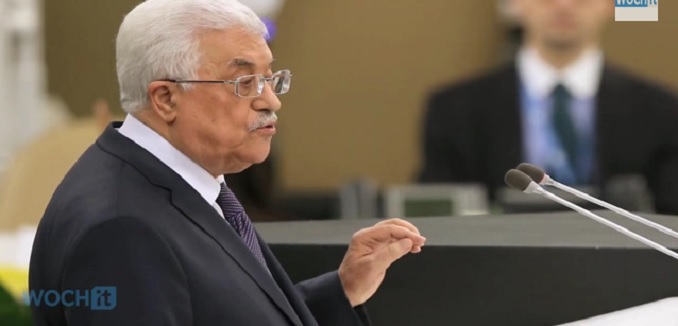Palestinian leaders over the weekend lashed out against the State Department, after Foggy Bottom harshly criticized a speech given by Palestinian Authority (PA) President Mahmoud Abbas in which Abbas charted a diplomatic path that would see the Palestinians abandoning negotiations with Israel in favor of international legal warfare against the Jewish state.
State Department Spokeswoman Jen Psaki had blasted Abbas’s speech – given Friday to the United Nations General Assembly – as among other things “offensive,” “deeply disappointing,” and “counterproductive.” Top Palestinian negotiator Saeb Erekat responded on Sunday:
Erekat described Psaki’s words as “irresponsible, indecent and rejected.”
He said that all items underscored by President Abbas during his speech were welcomed by the international community, with the exception of the Israeli Government and the U.S. State Department spokeswoman.
Meanwhile, U.S. analysts piled on criticism of Abbas’s speech. The Washington Post published a blistering opinion – headlined “Mahmoud Abbas’s Dangerous Grandstanding” – blasting Abbas for accusing Israel of a variety of crimes and for forgoing future negotiations:
Hamas’s diminution might seem to create new possibilities for agreement between Palestinian Authority President Mahmoud Abbas and Israeli Prime Minister Benjamin Netanyahu. Mr. Abbas, after all, denounced Hamas’s embrace of carnage and refused to support a simultaneous uprising in the West Bank. Yet Mr. Abbas delivered a bridge-burning speech to the U.N. General Assembly last week, mendaciously accusing Israel of “a new war of genocide” and declaring that a return to negotiations was “impossible.”
For several years Mr. Abbas has oscillated between half-hearted participation in peace talks and attempts to advance the Palestinian cause through unilateral action at the United Nations. The latter initiatives have no chance of substantive success and risk being self-defeating, as the Palestinians should have learned from Mr. Abbas’s last such gambit in 2012. Then their lobbyists were unable to win enough support for a U.N. Security Council resolution even to force a U.S. veto, and a compensatory symbolic measure in the General Assembly provoked Israel to impose painful financial sanctions.
The Post more specifically knocked Abbas for “refusing to respond to a U.S. framework for peace talks painstakingly developed by Secretary of State John F. Kerry,” and for instead choosing to unilaterally pursue an international diplomatic strategy isolating Israel.
Council on Foreign Relations Senior Fellow Elliott Abrams had a day earlier criticized the Palestinian leader for “los[ing] touch with facts and reality” and for doing “more harm than good.” Abrams noted that Palestinian diplomats may be facing an unfavorable diplomatic environment, after President Barack Obama had said “very little about the Israeli-Palestinian conflict other than to remark that it is simply not central.”
Abbas’s speech, however, may not have improved the Palestinians’ diplomatic position. Israeli Foreign Minister Avigdor Lieberman worried earlier this week that Abbas could not be taken as a reliable peace partner given the content and tone of his speech. Israeli officials nonetheless emphasized on Tuesday that Prime Minister Benjamin Netanyahu was willing to meet with Abbas to reinvigorate negotiations.
[Photo: WochitGeneralNews / YouTube]




